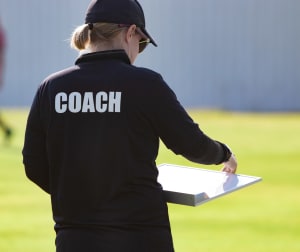
Behind every successful MMA fighter stands a team of dedicated coaches and trainers who play a pivotal role in their development and success. In this article, we'll explore the essential role that coaches and trainers play in the world of MMA, from technical instruction to mental and physical preparation.
One of the primary responsibilities of coaches in MMA is to provide technical instruction and skill development across a range of disciplines. This includes striking techniques such as boxing, kickboxing, and Muay Thai, as well as grappling techniques like Brazilian Jiu-Jitsu and wrestling. Coaches work closely with fighters to refine their technique, improve their timing and accuracy, and develop a diverse skill set that can adapt to different opponents and scenarios. Coaches also play a crucial role in strategic planning and fight preparation. They analyze opponents' strengths and weaknesses, develop game plans, and tailor training programs to address specific challenges. This may involve studying footage of opponents, simulating their style in training, and devising tactics to exploit vulnerabilities and capitalize on opportunities during the fight. Coaches work closely with fighters to ensure they are mentally and physically prepared for the demands of competition.
In addition to technical instruction, coaches oversee the physical conditioning and strength training of MMA fighters. They design and implement structured training programs that focus on improving endurance, strength, speed, and agility. This may involve a combination of cardiovascular exercises, resistance training, plyometrics, and functional movements to enhance overall athleticism and combat readiness. The mental aspect of MMA is just as important as the physical, and coaches play a vital role in mental preparation and sports psychology. They help fighters develop mental toughness, confidence, focus, and resilience to overcome adversity and perform at their best under pressure. Coaches employ various techniques such as visualization, goal setting, positive reinforcement, and stress management to optimize mental performance and enhance competitive mindset.
During competition, coaches serve as cornermen and provide essential support and guidance to fighters between rounds. They offer strategic advice, technical adjustments, and motivational encouragement to help fighters stay focused and execute their game plan effectively. Coaches' presence in the corner provides reassurance and a sense of stability, allowing fighters to perform with confidence and composure inside the cage. In the dynamic and demanding world of MMA, coaches and trainers are the unsung heroes behind the scenes, shaping and guiding the careers of fighters. From technical instruction and strategic planning to physical conditioning and mental preparation, coaches play a multifaceted role in the development and success of MMA athletes. Their dedication, expertise, and support are essential components of a fighter's journey, contributing to their growth, improvement, and achievement of their goals in the sport. As MMA continues to evolve and grow, the importance of coaches and trainers in shaping the next generation of champions cannot be overstated.

